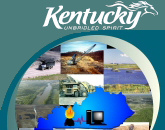 |
 |
 |
|
 |
 |
 |
 |
 |
|
 |
 |
| Kentucky
Coal Heritage Interview with Oscar Dee Dawahare |
 |
|
|
|
|
|
|
Interview with Oscar Dee DawahareDavid A Zegeer: Tell us about your father, and where he started out and how his business enterprise in expanded from there. Oscar Dee Dawahare: David, it’s a little different if you look at it today. But back then, he had just a little store in east Jenkins, which was just a frame building. And he supplied the needs of the miners and the local people of basic necessities of life, whatever that might be. You know what I mean? It’s just nothing. They had no needs for a lot of fancy clothes, but they did have some dress clothes, mostly in a work clothes line. That was in east Jenkins until a trading area in Neon, Kentucky, began to develop. And he had the opportunity to move to Neon, and he did. And when he moved there, he began to expand the variety type of clothing. Mining were beginning to pick up. He began to employ more people. The demand became greater and greater. And naturally when you have a mining town like Neon, where people were trading area, they needed clothing and whatever they needed it was available. Mining back then, was just wonderful to be in a part of a community where you only had one livelihood, and that was coal. And teaching, and just basically employees in stores. And it was wonderful to be associated with people of all walks of lives in Neon. David A Zegeer: What was the purpose of mechanization? To eliminate the jobs or weather to produce more tons of what you had with machinery? To be competitive and even lower your cost? Or if you remained in hand loading, your cost would have been prohibitive? And a lot of people that had misconception that would it was mechanized to lay people off. And was from your point of view, was that the intention of mechanization? To eliminate jobs? Oscar Dee Dawahare: Well, as company, a mining company, they had responsibility, too. It’s production. You got to produce coal per hour per man. And if you could do that with new modern equipment, you would do so. That’s the way of our life. We live in such a way today that we are always looking for a newer and better ways of enjoying life. And mining is no different. David A Zegeer: Let me ask you this, to clear my thinking. More machinery producing more coal with less people. And yet you and your family started out with one store and now you have a large of chain stores, twenty some stores throughout Kentucky, Tennessee and some up around Cincinnati. How could this reduction in coal miners cause increase in the numbers of Dawahare stores? Oscar Dee Dawahare: Well, you got to understand the fact that my father has eleven kids. He kept us all busy by being employed. As his family grew, he has business grew. As he left one community to another community, and one community to another community. As they became of age he would keep them busy. He would keep himself busy. And opportunity just opened up. Really our investments all started from coal field, everything we’ve owned and own, come from the coal. Listen, I have know that must respect for King coal of Kentucky because without that, we wouldn’t be here today. Because they gave us a start. We'll never forget it. It has always been part of our heritage, that what we could do, we do. Naturally, we do go from town to town. Opportunities, when they come, we take an advantage of it. It just like the companies if they invent a new piece of machine ready to get more production, they do it! David A Zegeer: Well, I would say, Dee, that your father is a typical example of greater American story, where first then take situation as opening up a store in the coal field and developing the, I'll say, the empire that he has. And that’s great. And I might even make reference to the fact that your father-in-law and I worked together in a mine at Rock House Creek many years ago. Those were good years. And we saw the industry mechanized more and more. It had its impact, but it still kept the coal industry in a very competitive state, where coal is still the cheapest resource of energy we have today. And lots of people don’t realize it, but fifty six, fifty seven percent all the electricity in this country is generated by coal. And the development of coal industry not only in Appalachia but throughout there rest of the country has been a great boost for the way of life in this whole country. I thank you very much for your talking to me and it has been a very interesting reflection on life on Appalachia.
|
|
 |
Copyright © 1996-2008
Kentucky Foundation All rights reserved. E-mail webmaster@miningusa.com |
|
 |